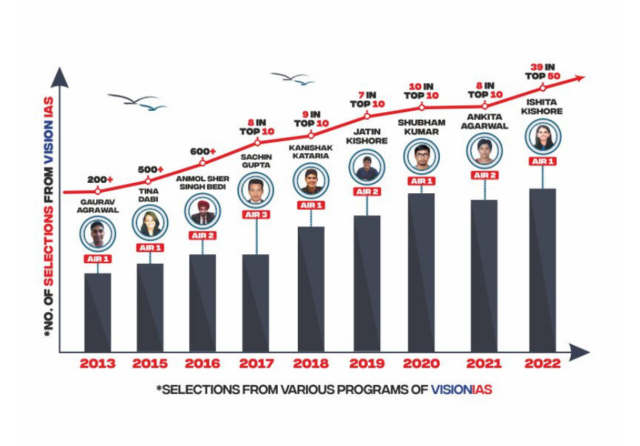
The Role of Civil Servants: A Glimpse into Their Responsibilities
This is merely a glimpse of the responsibilities that are expected to be carried out by the Civil Servants of our country. They also play an important role in the policy formulation and their implementation. To be a part of this team, they undergo a rigorous selection process under the Union Public Service Commission (UPSC) Civil Services Examination (CSE), one of the most challenging and prestigious examinations in India.
The UPSC CSE: A Test of Multifaceted Skills
This examination is not just a test of knowledge, it evaluates candidates on a wide range of skills and attributes essential for effective administration and governance. To navigate this demanding journey successfully, it’s crucial to understand the intricacies of each stage and the skills required to excel.
Preliminary Examination: The First Step
The Preliminary Examination serves as the initial platform in an aspirant’s pursuit of becoming a civil servant. It consists of two objective-type papers: General Studies Paper I and General Studies Paper II (CSAT). This stage aims to evaluate the aspirant’s readiness for the more in-depth Main Examination by assessing their fundamental knowledge, current affairs awareness, and cognitive abilities needed in Civil Servants.
Mains Examination: The Analytical Crucible
The Mains Examination is the written stage that delves deeper into an aspirant’s knowledge and analytical skills. It comprises nine papers, including four General Studies papers including Ethics, two papers for an optional subject, and one Essay paper. This stage assesses the aspirant’s ability to think critically, analyze complex issues, and communicate effectively through coherent and cogent writing.
Personality Test (Interview)
The final stage of the UPSC CSE is the Personality Test, commonly known as the Interview round. It’s a crucial assessment stage that evaluates an aspirant’s intellectual and social traits that reflect their ability to interact effectively with diverse groups of people and their readiness for a career in Civil Services.
Holistic Preparedness: A Necessity
In light of the diverse requirements and challenges posed by each stage of the UPSC examination, it becomes abundantly clear that holistic preparedness is not just an advantage but a necessity. To stand out as a well-rounded and successful aspirant, it is crucial to embark on a preparation journey that integrates various facets from the beginning itself.
Key To Success: A Smart and Integrated Preparation Strategy
At the heart of UPSC success lies the need for a smart and integrated preparation strategy for Prelims, Mains, and Interview stages. Each of these stages requires a distinct set of skills and knowledge. Weaving them into a cohesive strategy to develop knowledge, competencies, and personality traits needed to excel at each stage of the examination becomes essential. This would not only optimize the use of time and resources but also ensure that aspirants are consistently progressing toward their goal.
Building a Strong Foundation
After having adopted such a strategy, aspirants need to progressively move towards laying the foundation of their preparation in subjects like History, Geography, Economics, Polity, and the Environment. This forms the cornerstone of their preparation and is applicable to both Prelims and Mains which need to be constantly updated and enriched with current affairs and regular newspaper reading.
The Role of Quality Resources: A Crucial Factor
In this endeavor, access to reliable, validated, and effective resources and study materials play a crucial role as it not only helps aspirants build the requisite knowledge base but also save valuable time and effort in developing the same.
Developing Essential Skills: Problem-Solving and Answer Writing
However, mere possession of knowledge is not sufficient as the development of problem-solving and answer writing skills for Prelims and Mains examinations respectively constitute the most consequential phase of the preparation. In this regard, Mock Tests and Previous Year Questions play a decisive role in familiarizing an aspirant with the demands of the examination, the nature and pattern of questions, and evolving dynamics requiring nimble strategies to cater to this demand.
Valuable Insights and Guidance: The Mentor’s Touch
Furthermore, quality assessment, performance analysis, and targeted feedback can help aspirants evaluate their progress, identify areas for improvement, and refine their approach accordingly. At the same time, quality guidance from experienced peers, friends, and Mentors can provide valuable insights, study plans, targeted interventions, and emotional support, to continuously improve and remain on track to achieve success in this examination.
Learning From Topper’s Success Strategies
Here, one can gain valuable insights from the Topper’s Talk and their Answer Scripts in the form of essential lessons to enrich their own skills for Prelims and Mains examinations and refine preparation approaches. Furthermore, they can help adopt innovative learning techniques, precise note-making, and effective revision strategies to help learn, retain, and apply the learned knowledge.
Mental Resilience and Unwavering Motivation
It needs to be acknowledged that the UPSC journey is a long and challenging one. Developing mental resilience in the face of obstacles and keeping a high motivation level by continually reminding oneself of their ultimate goal helps to stay committed and steadfast toward goal attainment.
Innate Potential for Great Achievements
There is an innate potential in each aspirant to achieve great and magnificent outcomes when they put their hearts and minds into it. With hard work, dedication, and perseverance with a single focus, any challenges can be surmounted and any goal can be achieved by the brilliance of a human mind and perseverance in effort.
India’s Transformation: The Role of Civil Servants
As India moves with a confident stride in its developmental journey carrying the aspirations of more than a billion people, it would require dedicated officers and committed bureaucracy to turn these dreams into reality. The UPSC CSE provides that gateway to be a part of a nucleus of Team India that drives this transformation of India into a developed nation by 2047
Visit us at: http://www.visionias.in/delhi/
Or Call us at: 8468022022, 9019066066
Read More:
Did Navya Naveli Nanda Get Into IIM-Ahmedabad Blended Program Through Quota?






























